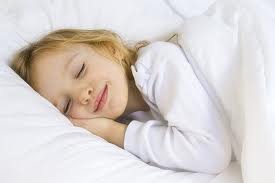Some parents are now worried that their son or daughter who is even 9 year old still wetting the bed several times a week. So the matter here is how to help them being able to go to sleepovers without dying of embarrassment.
Bedwetting, known medically as sleep or nocturnal enuresis, is defined as involuntary voiding, or urination, during sleep that occurs at least twice a week after the age of 5. If the child has ever had a six-month period during which she was consistently dry, then she is said to have primary sleep enuresis.
If there was a six-month period of dryness, and yet bedwetting started again and lasted at least three months, then we call it secondary enuresis. The prevalence rates are higher in boys, but it is not uncommon in girls.
The traditional thinking has been that primary enuresis is more likely to be caused by a urologic disorder, but even in secondary enuresis, that is also always a consideration. Most important is the age of the child, how often the bedwetting is occurring, and whether there are signs and symptoms of other medical problems or psychosocial stressors.
The case of bedwetting causes many effects not only for the children themselves but also for the parents. By the first grade, most children with having bedwetting are often feel embarrassed by their bed-wetting condition. They tend to withdraw from social activities that require sleeping outside their home. They also often suffer from low self-image. These children’s feelings can be greatly affected by the attitudes of their parents, who may feel that their efforts to end the bed-wetting have failed. Parents may also feel frustrated, angry and embarrassed about their children’s bed-wetting condition. Parents can help their children reduce negative feelings about their bed-wetting condition and speed up the process of overcoming it, by offering positive support, understanding and encouragement.
According to sleep experts, the causes of bedwetting are commonly from urinary tract infections and malformation of the genitourinary tract. Besides, there are several disorders that can cause or be associated with bedwetting such as: 1) diabetes; 2) sickle cell disease; 3) malfunctioning of the hormone, vasopressin; 4) chronic constipation; 5) nocturnal seizures or other neurological disorders; 6) obstructive sleep apnea.
To deal with this problem in children, there are generally two main treatment: medical and behavioral. The medical treatment usually consists of the use of one of two drugs: Imipramine (Tofranil) ,Desmopressin acetate . However, in this article we prefer to suggest more detail in Behavioral treatment as this method is often more effective and certainly is safer than medical treatment. There are several methods that may be helpful:
- Control urinating: The child is asked for retention control during the day by postponing it, first by a few minutes and then by gradually increased amounts of time. This exercise can extend the capacity of the bladder and strengthen the muscle that holds back urination. Parents should always check with a doctor before asking their child to practice retention control.
- Wake you children up at night: This procedure involves waking your child periodically throughout the night, walking your child to the bathroom to urinate, and then returning your child to bed. By teaching your child to awaken and to empty his or her bladder many times during the night, it is hoped that he or she will eventually stay dry.
- Wetness alert: Wetness alerts are considered a helpful and successful way to treat bed-wetting. Medical research has found that wetness alerts have helped many children stay dry. This solution requires a supportive and handy family and might take many weeks or even several months to work. Moisture alarms have good long-term results and fewer relapses rather than medications.

